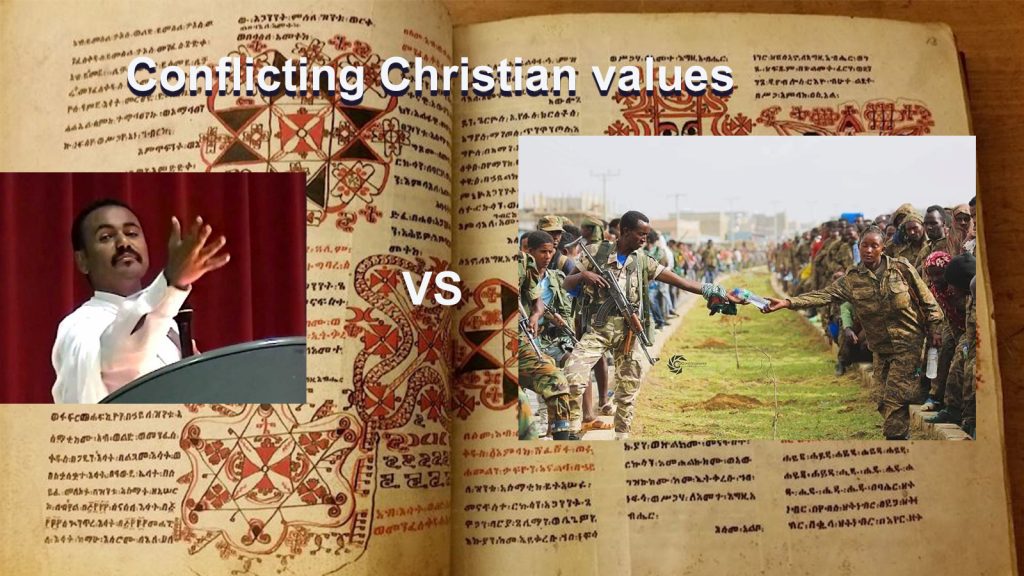
Religious belief and custom are affecting the Ethiopian Tigray conflict. Ethiopia is relying on ancient beliefs of magic while Tigray counters with traditional mercy. The Ethiopian leadership under Abiy Ahmed is trying to use traditional mysticism and imperial religious stature rendered by Donatistic convictions to motivate and justify its sadistic aggression while the Tigray leadership is countering these using the conventional Christian virtue of mercy. The Ethiopian leadership of Abiy Ahmed and his religious supporters use the traditionally high stature of religious leadership along with the populations belief that they may have supernatural powers which can break established moral norms to achieve ends in war resulting in a perfect recipe for genocide.
Daniel Kibre, a “deacon” and Social Affairs Ethiopian Minister defames Tigrayans as demons and subhumans worthy of extinction. He falsely pronounces that Tigrayan leadership, Tigray Peoples Liberation Front are atheists and thus not eligible for Christian mercy. The deceased leader of the TPLF, Meles Zenawi, was a practicing Ethiopia Orthodox believer and is buried on holy ground at Holy Trintiy in Addis Ababa.
Kibret’s actions are exhibiting the classic role of a debtera. He and other EOC followers tell their recruits that special blessings are upon to protect them from harm and punish the Tigray. While the Tigray leadership treats POWS with mercy and has EOC priests from Tigray pronounce forgiveness for Ethiopian POWS after their rehabilitation.
There was not much communication with the Eastern Orthodox Church or Roman Church for hundreds of years due in part to the expansion of Islam which isolated Ethiopia . Many cultural factors including the close relationship of the clergy to the imperial state and a strongly pious population created a unique form of Christianity which affected their daily lives.
The power of religious leaders was enhanced by two strong cultural developments. While much of Western Christianity rejected Donatism, the idea that for a priest to be holy enough to prepare the Eucharist or give blessings must be in a state of grace with God, for Ethiopia this become the rule. This greatly enhanced their status as advisors to government leadership as well as in communicating to the population giving them a great power of influence over both.
Secondly, the Eastern tradition of great attention to mysticism was greatly stressed in Ethiopia. A few elite clergy and lay practitioners in each generation were taught secret prayers and rituals which could cure the sick, affect natural events, place curses, or even change behaviors of individuals or groups. This prayers and rituals were closely guarded secrets. Both selected clergy and a special class of religious zealots, debtera, have special access to secret texts which describe special prayers and rituals which can perform alleviation of suffering such as healing of the sick but also can be used to do harm. Anthropology researcher, Diego Maria Malara, noted
Yet, while drawing on this tradition, the debtera’s ritual repertoire also transgresses some of its central proscriptions. Transgression, in this context, does not abolish the boundaries it violates, but reinstates their legitimacy. This dynamic prompts debtera to engage in imaginative ethical reassessments of the unstable relationship between illicit knowledge and official tenets. Through their transgressive performances,debtera enable their clients to secretly address and actualise sinful desires that otherwise remain unacknowledged or are suppressed by the Ethiopian Orthodox Church.

